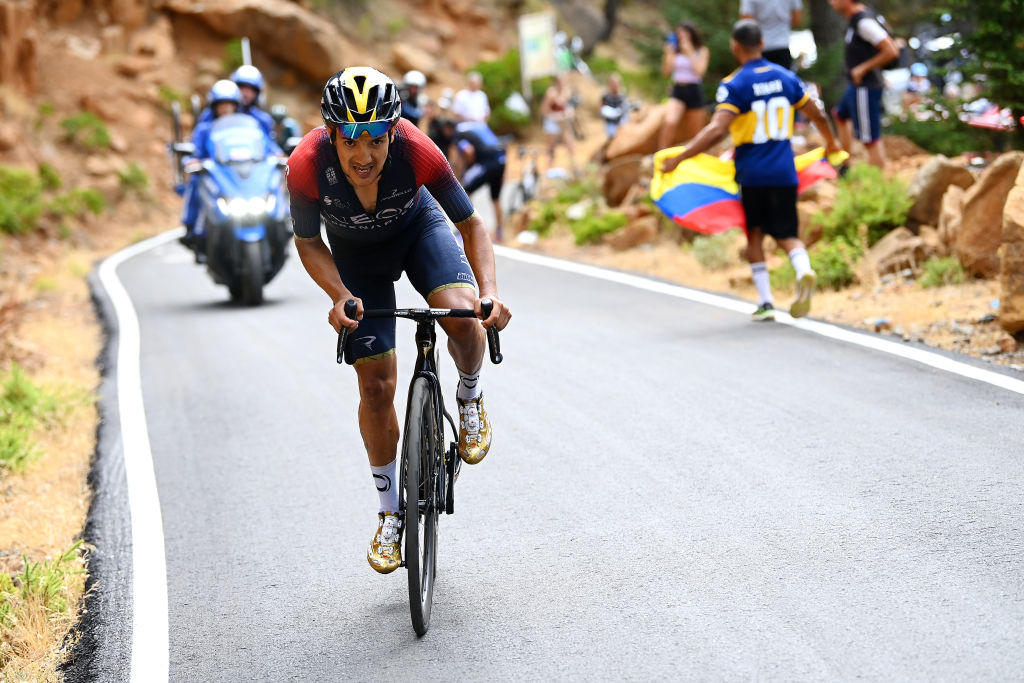As he approached the finish line of stage 12 of the Vuelta a España, the way Richard Carapaz (Ineos Grenadiers) hammered repeatedly at the handlebars before raising his arms in victory made it more than clear how much of an emotional release this 15th career triumph represented for the Ecuadorian.
Having come to the Vuelta, as Carapaz put it afterwards, “with other objectives,” mainly to go for a top GC result, his overall bid fell apart even before the first week’s mountain stages were complete.
Like many of the potential Vuelta GC candidates now well out of the overall battle, Carapaz decided he was going to refocus on trying for a stage win. And the repeated appearance of his name in the multiple attempts at breakaways early on stage 12 showed he meant to keep his word at almost the earliest possible climbing opportunity.
“I knew I wasn’t going to stay up there on GC on Saturday,” the second summit finish to Colláu Fancuaya where Carapaz lost four minutes on the favourites, “so I told my trainer I was dropping out of it,” the 29-year-old told reporters afterwards.
A runner up in the 2020 Vuelta and again in the 2022 Giro d’Italia, Carapaz said, “I had decided to go for the overall in the Vuelta again back in last October, but there were lots of reasons why it wasn’t working, a combination of circumstances.”
Carapaz denied, though, that the news breaking of his departure for EF Education-EasyPost during the Vuelta had been one of those reasons which had affected his GC performance. And he certainly paid tribute to Ineos Grenadiers for their role in his latest victory, saying “thanks to team support, trying to help me get in the breaks like today, here I am now.”
Getting in any break is hard enough in itself. But succeeding from a break as improbably large as the 32-man move that finally made it away on the road to Peñas Blancas is an even more complicated ask.
However, Carapaz managed to do that with a brilliantly-executed strategy on the final climb, one that even allowed him to turn a weakness – being one of the few top potential stage winners without a teammate in the break – to his advantage.
Shadowing the Bora-Hansgrohe and Alpecin-Deceuninck squads, the two most powerful teams on the climb, as they tried to push each other to make a wrong move, Carapaz stayed just behind the leaders as the 32-man group shrank remorselessly to just half a dozen riders out in front, two-thirds of the way up.
Even when Elie Gesbert…
Click Here to Read the Full Original Article at CyclingNews RSS Feed…

